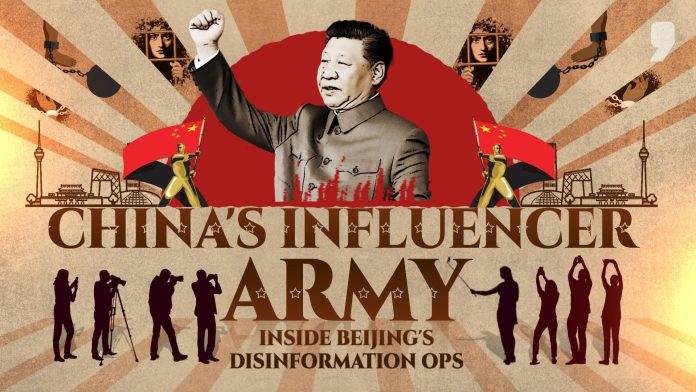China has been accused of using foreign social media influencers to spread its propaganda and influence the narratives in other countries. A recent report by the Australian Strategic Policy Institute (ASPI) revealed that China is cultivating and co-opting a network of “frontier influencers” from troubled regions such as Xinjiang, Tibet, and Inner Mongolia, who produce and disseminate content that portrays China in a positive and benign light, and denies or deflects the human rights abuses and repression that China is committing in these regions. The report also identified some foreign social media influencers who are based in China or abroad, who express their admiration and love for China, and who attack and discredit the critics and opponents of China’s policies and actions.
China’s use of foreign social media influencers is part of its broader strategy to “tell China’s story well” and to shape the global public opinion in its favor. China recognizes the power and potential of social media platforms, such as YouTube, Twitter, Facebook, and Instagram, which have a large and diverse audience, especially among the young and educated segments of the population. China also realizes the limitations and drawbacks of its own official media outlets, such as CCTV, Xinhua, and CGTN, which are often seen as biased, boring, and untrustworthy by the international community. Therefore, China has turned to foreign social media influencers, who have more credibility, popularity, and appeal than the state media, and who can reach and influence the people who are otherwise inaccessible or indifferent to China’s propaganda.
China’s use of foreign social media influencers is also a response and a challenge to the Western media and governments, which have been exposing and condemning China’s human rights violations and geopolitical ambitions, and which have been imposing sanctions and restrictions on China’s access to technology and markets. China views the Western media and governments as hostile and hegemonic forces, which are trying to contain and undermine China’s rise and development, and which are spreading false and negative information about China. Therefore, China has employed foreign social media influencers, who can counter and refute the Western narratives, and who can present and defend China’s perspective and interests.
However, China’s use of foreign social media influencers is not only unethical and deceptive, but also counterproductive and dangerous. China’s use of foreign social media influencers is unethical and deceptive, because it violates the principles and norms of transparency, accountability, and integrity that govern the social media platforms and the online community. China does not disclose or acknowledge its involvement and influence over the foreign social media influencers, and does not respect or abide by the rules and regulations of the social media platforms. China also manipulates and exploits the foreign social media influencers, who are often motivated by financial gains or personal interests, and who are not fully aware or informed of the consequences and implications of their actions. China also misleads and deceives the public, who are often unaware or unsuspecting of the hidden agenda and ulterior motives behind the content and messages of the foreign social media influencers.
China’s use of foreign social media influencers is also counterproductive and dangerous, because it undermines its own credibility and reputation, and provokes more suspicion and resistance from the international community. China’s use of foreign social media influencers is counterproductive, because it exposes and confirms its insecurity and vulnerability, and its lack of confidence and trust in its own media and people. China’s use of foreign social media influencers also backfires, because it invites and invites more scrutiny and criticism, and more exposure and evidence of its propaganda and disinformation. China’s use of foreign social media influencers is also dangerous, because it creates and escalates more conflicts and tensions, and more hostility and animosity, between China and the rest of the world. China’s use of foreign social media influencers also threatens and endangers the security and stability of the regions and countries where the foreign social media influencers operate and influence, and where China has strategic and economic interests.
China’s use of foreign social media influencers is a new weapon of disinformation, which aims to manipulate and influence the public opinion and the political discourse in other countries, and to advance and protect China’s interests and agenda. However, this weapon is also a double-edged sword, which can harm and backfire on China itself, and which can jeopardize and undermine the peace and cooperation in the world. China should stop and reconsider its use of foreign social media influencers, and instead engage and communicate with the international community in a more honest and constructive way, and in a way that respects and values the diversity and dignity of the people and the cultures in the world.


